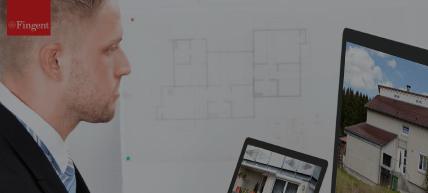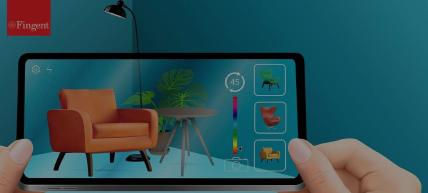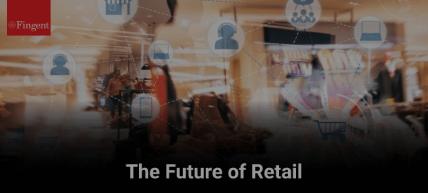Retail Industry
Software Development in Retail is Changing the Game
The retail industry is facing fierce competition and rapidly evolving consumer preferences. To stay ahead of the curve, retailers increasingly turn to software development as a game-changer, enabling them to streamline their operations, improve customer experiences, and reduce costs. From e-commerce platforms that allow them to sell products online to advanced POS systems that enable them to track sales and inventory to innovative CRM software that provides personalized customer experiences, retailers are leveraging software to transform their businesses. As technology continues to evolve at a breakneck pace, software development will inevitably play an even larger role in shaping the retail sector’s future.
| E-commerce | Point-of-Sale (POS) management | Omnichannel fulfillment |
| Supply chain management | Warehouse and inventory | Payment security |
| Online/ Web stores | Retail analytics | Payment gateway integration |
| E-commerce | Point-of-Sale (POS) management | Omnichannel fulfillment |
| Supply chain management | Warehouse and inventory | Payment security |
| Online/ Web stores | Retail analytics | Payment gateway integration |
Retail Software Solutions
Types of Retail Software that can Optimize the Retail Business
Retail ERP Systems
- Customer management
- Employee management
- Financial resource management
- Supply chain
- Product management
Point-of-Sale (POS) Software
- In-store transactions
- Track inventory
- Payment processing
- Mobile POS solutions
Inventory management software
- Automated reordering
- Demand forecasting
- Report generation
- Supplier management
E-commerce Platforms
- Product catalog
- Search and filter
- Shopping cart
- Checkout and payment
- Customer management
Analytics software
- Data visualization
- Predictive analytics
- Performance tracking
Marketing Automation Software
- Automate marketing campaigns
- Track customer engagement
- Improve customer retention
Retail Management Software
- Managing inventory
- Billing and invoicing
- Verifying stock levels
- Customer relationship management (CRM)
- Data analysis and report generation
Omnichannel Retail Platforms
- Both online and offline sales
- Product and order management
- Content personalization
- Customer support
Payment Processing Software
- Payment gateway integration
- Multiple payment methods
- Fraud detection and prevention
- Multi-currency support
Supercharge your retail operations and discover the limitless possibilities of retail innovation with custom software development.
Technologies
Emerging Technologies and Trends in the Retail Industry
AI & Data Analytics
Retailers use AI tools to create personalized experiences for customers, tailoring recommendations, offers, and promotions to individual preferences and behaviors.
Robots and Automation
Retailers use robots to handle inventory management, restocking shelves, cleaning, and customer service. Also, they are used for tasks like picking and packing orders in warehouses.
Internet of Things (IoT)
Connecting devices and systems throughout the retail supply chain, allowing for real-time inventory tracking, smart pricing, and improved supply chain management.
Voice commerce
Voice assistants like Amazon’s Alexa and Google Home allows consumers to make purchases and order products with simple voice commands.
Contactless and frictionless payments
Contactless payments involve waving a payment card or mobile device near a reader, while frictionless payments are made automatically without any physical interaction or manual entry of payment details.
Augmented Reality (AR) and Virtual Reality (VR)
Retailers are using AR/VR technologies to enhance the customer experience by allowing customers to try on clothes virtually, visualize furniture in their homes, and even interact with products in a virtual environment.
Business Scenarios
Leveraging Software Solutions to Transform Retail Operations
Manage sales and checkout
A point-of-sale (POS) system implemented in retail stores helps in managing sales transactions, tracking inventory levels, capturing customer data, generating sales reports, and integrating with other software systems.
Automation of critical processes
Retail operations like inventory management, order fulfillment, and customer service can be automated with minimal human intervention. Automation reduces errors, improves efficiency, and frees up employees on more complex and strategic tasks.
Delivery systems
GPS tracking and route optimization software features live shipment tracking, route planning, and vehicle capacity optimization. It also enables home delivery, click-and-collect, or locker-based systems.
Personalized marketing
Use of data analytics software to analyze customer behavior and preferences, enabling them to create personalized marketing campaigns that target their specific customer segments.
Virtual try-on
A clothing retailer uses augmented reality software to enable customers to try on clothes virtually, without the need for a physical fitting room.
Sales analytics
Retailers can leverage software solutions to analyze sales data, gain insights into customer behavior, and make informed business decisions.
Inventory management and optimization
Software solutions can help retailers to manage their inventory efficiently, by providing real-time inventory visibility, automating reorder processes, and analyzing demand patterns to optimize stock levels.
The Fingent Way
Revolutionizing Retail Businesses with Custom Software Solutions
Custom Retail Software for Maximum Efficiency
Generic retail software lacks the flexibility to deliver a modern retail experience consumers have come to expect. Fingent builds custom retail applications to connect everything from legacy enterprise systems to new solutions for highly-personalized retail experiences.
Integrate IoT Devices for Retail Intelligence
Internet of Things (IoT) devices equipped with smart sensors and persistent connectivity can lead to engaging and unique retail experiences. Fingent integrates smart shelving, customer service robots, and other IoT devices for a connected customer business model.
Apply AI to Forecast and Manage Demands
Fingent empowers retail businesses to forecast and manage demands during peak times by applying artificial intelligence techniques such as data science and predictive analytics. AI-based solutions will support businesses with risk management, enhanced delivery chain, and increased profits.
Analyze Purchasing Data for Customer Insights
Fingent works with retailers to analyze shopping data and deliver enhanced retail experiences. Greater insights into purchasing trends make it possible to provide product recommendations and make business decisions backed by accurate, up-to-date information.
Use AR and VR to Merge Retail Experiences
Augmented reality (AR) and virtual reality (VR) allow consumers to experience products using new technology. Fingent helps retailers close the gap between online and offline purchasing through overhauled experiences that blend physical and digital solutions.
Employ Big Data for Highly Personalized Shopping Experiences
Fingent assists retail companies gain insights into customer buying preferences and behavior using new or existing data. Enhanced data analysis allows retailers to craft effective marketing strategies and deliver personal retail experiences based on customer behavior.
Maximize your retail business potential with a personalized software solution to increase efficiency, productivity, and competitiveness, leading to higher profitability and growth.
Client Stories
Fingent’s Featured Software Solutions in the Retail Industry

Premium Retail provides merchandising, assisted sales and field marketing services for retailers and manufacturers. They required an application to effectively handle large volumes of data and replace their existing obsolete communication system. Fingent developed a solution that converts significant data volumes into visual representations and automates data input procedures.
Outcome:
- Interactive and customized charts and reports
- Real-time interactive feeds across departments
- Department-specific dashboards
- Data representation in various formats

Replika software provides retailers with a sales management suite to drive sales and monitor the impact. Fingent implemented a solution that follows a customer’s digital journey across multiple touchpoints and deliver augmented experience.
Outcome:
- Track performance across brands, stores, and salesperson total sales
- Dashboards to view sales report of each brand and store
- Purchase history report
- Activity logs to track brand admin and salesperson
Cost & ROI
Cost and ROI of Developing Retail Custom Software
Factors affecting cost of building a custom software for a retail business:
- Complexity of the software solution
- Technology and programming language used
- Number of features and functions required
- Level of customization needed
- Timeline for development and deployment
ROI of developing custom software:
- Improved operational efficiency and productivity
- Increased accuracy and reduced errors
- Enhanced customer experience and satisfaction
- Better inventory management and supply chain optimization
- Competitive advantage in the marketplace
- Increased revenue and profitability
Ultimately, the ROI of developing a custom software solution for retail depends on the specific business needs and goals. However, when done properly, the benefits can far outweigh the costs, leading to long-term growth and success for the retail business.
Partnering with industry experts can lead to a personalized and affordable solution that boosts your retail operations and generates substantial returns on investment.
Insights
More Insights on Retail Industry Software Development
Futuristic Technologies Transforming The Real Estate Industry!
Over the years, digital evolution has transformed the way we shop! The lockdowns and store closures due to the unprecedented events of 2020 has moreover accelerated this evolution and mainstreamed online shopping. Today consumers don’t just make purchases online.










































